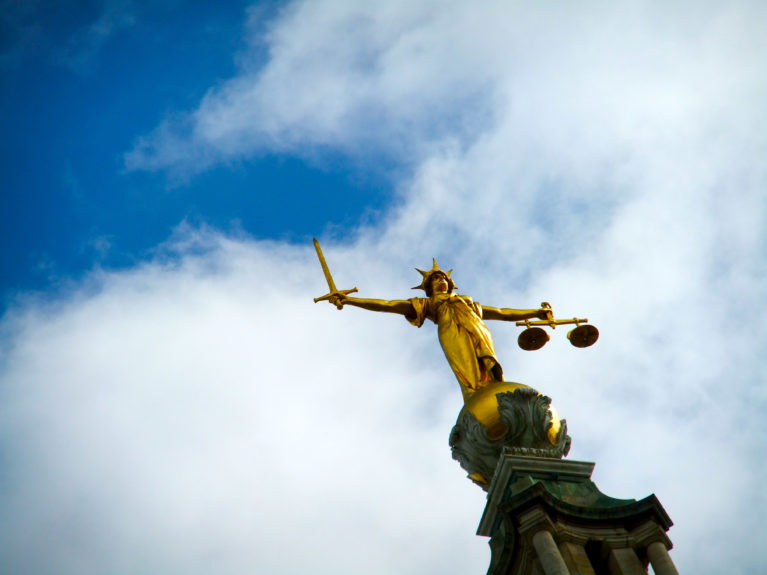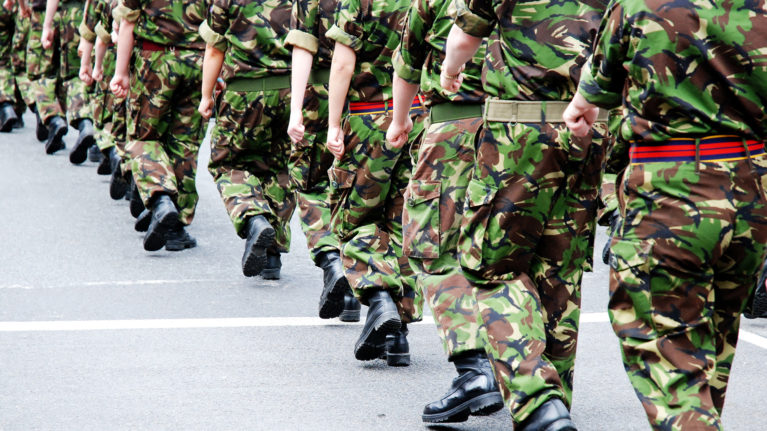Soldiers' rights
Two decades after Sean Benton died, let’s hope 2018 brings the answers his family deserve
Posted on 05 Jan 2018
For Sean’s family, for those who served at Deepcut barracks, for everyone who wants people who fight for their country to be treated with the respect they deserve, we hope the new Coroner can finally uncover the truth about what happened to Sean Benton.
Sean Benton was 19 years old when he signed up to join the Army.
In his application, he said he wanted to help keep peace in other countries and serve his country for as long as he could.
Even as a teenager, no one expects Army life to be easy. Sean knew there would be early mornings, hard graft and strict orders.
But the toxic environment he seems to have found himself in is something he couldn’t have imagined.
Sean was found dead with five bullet wounds to his chest at Deepcut barracks on 9 June 1995 – little more than a year after joining up.
And to this day, his family still don’t know what happened to him.
Two decades of questions
Sean’s death was followed by three others – Cheryl James, 18, Geoff Gray, 17, and James Collinson, 17 – who all died of gunshot wounds at the barracks over the next seven years.
Surrey Police, who should have investigated Sean’s death at the time, did not – leaving the matter entirely in the hands of the military police.
Just as the first inquest into Cheryl’s death had been, the first inquest into Sean’s death in July 1995 was cursory. It was over in less than two hours. The coroner called just six witnesses – excluding people with vital information about what happened immediately before Sean died. He didn’t look at his medical or mental health records and heard no evidence about his experiences at Deepcut. The verdict was suicide.
The Benton family had many questions. They didn’t know why Sean might have taken his own life or how he came to be shot five times in the chest.
They hadn’t heard from those who had been with Sean in the hours and days before his death. They received no explanation as to why the scene of death was cleaned up so quickly, apparently preventing a proper forensic examination.
But they knew they deserved answers and – facing stonewalling by the authorities – they fought for 20 years to get them.
Bullying and abuse
After James Collinson became the fourth young recruit to die at Deepcut in 2002, there was a public outcry.
Surrey Police finally carried out an investigation in 2002, which concluded there was no evidence of third party involvement in any of the four Deepcut deaths. Officers told the families little about what had happened and refused them direct access to the materials they had uncovered.
Sean’s mother Linda Benton approached Liberty in 2012, and together we used the Human Rights Act to force Surrey Police to release all the files of evidence they held about his case.
As we examined witness statements and Sean’s Army and medical records, and as people who’d been at Deepcut in the 1990s came forward with new information, crucial details that had been ignored or overlooked by the original coroner came to light.
A number of people made powerful allegations that Sean was the target of vicious bullying and physical abuse by fellow recruits and more senior ranks.
Sean struggled with Army life and had been told he was going to be discharged from the Army the day before he died.
A fresh inquest begins
Over the decades, a disturbing picture has started to emerge of life at Deepcut.
In 2016, a fresh inquest was held into the death of Cheryl James, who died there just four months after Sean. It revealed life at the barracks to be chaotic and dangerous for the young trainees, who had unrestricted access to alcohol, minimal supervision and virtually no welfare support.
In light of the new evidence revealed in the Surrey Police papers, Sean’s family had also applied for a fresh inquest into his death. It was granted in October 2016 – the year after Sean’s mum, Linda, died, having never learned the truth of what happened to her son. Sean’s father, Harry died in 2011.
On 24 January 2018, a fresh inquest begins. It will examine allegations of bullying – not just against Sean, but against other young recruits at Deepcut. Experts will give evidence about Sean’s state of mind, and how the fatal shooting happened. And 150 witnesses will explain what they saw and heard in the months, days and hours leading up to his death.
For Sean’s family, for those who served at Deepcut barracks, for everyone who wants people who fight for their country to be treated with the respect they deserve, we hope the new Coroner can finally uncover the truth about what happened to Sean Benton. It should never have taken 20 years to get here.
I'm looking for advice on this
Did you know Liberty offers free human rights legal advice?
What are my rights on this?
Find out more about your rights and how the Human Rights Act protects them
Did you find this content useful?
Help us make our content even better by letting us know whether you found this page useful or not


